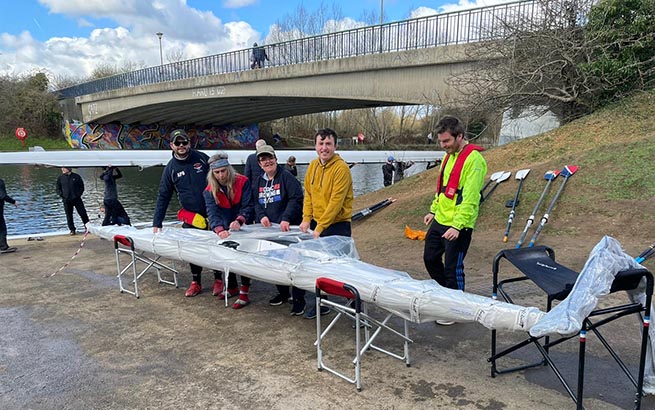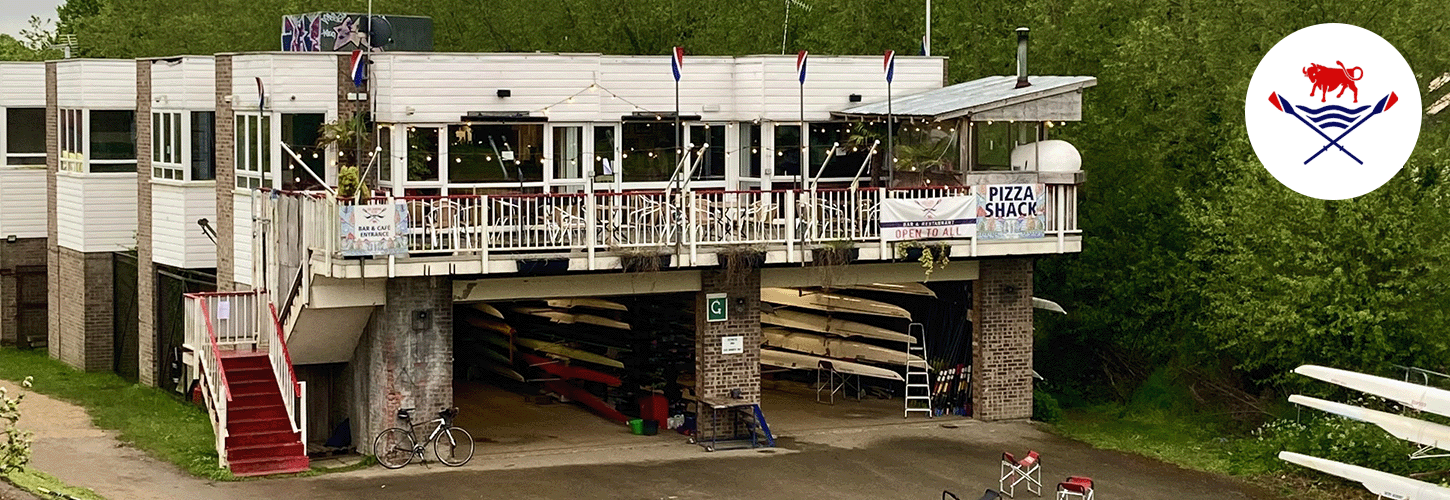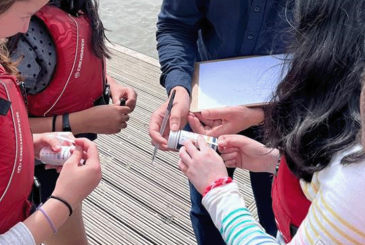City of Oxford RC has squads for all ages, interests and abilities, including one of the longest-established adaptive rowing programmes in the country. Joanne Harris finds out more
This year marks 25 years since City of Oxford Rowing Club (CORC) welcomed a local adaptive rowing squad into its ranks, expanding the offering for a club which has always had community at its heart. To celebrate, the CORC adaptive group will undertake a rowpast at Henley Royal Regatta this summer.
But there is a lot more for the club to celebrate right now. CORC was founded in 1968 and, 55 years on, has around 200 members covering every rowing demographic possible: senior, masters, recreational, junior and social.
“We try to offer something for pretty much everyone,” explains club captain Caitlin Armstrong. “We’re quite lucky that the river is quite central in Oxford, and you do get a lot of footfall. We provide an opportunity to get involved without having the ties to Oxford University or to Oxford Brookes.”
Armstrong says members join CORC from a variety of backgrounds – people in the wider Oxford area who want to row or try rowing, graduates staying in the city after attending one of its universities, and juniors from state schools lacking rowing programmes.
Facilities at City of Oxford RC
CORC rows out of its own boathouse next to Donnington Bridge, downstream of Oxford city centre. In the last couple of years, the club has reclaimed its downstairs gym from a private weightlifting business and refurbished it to create expanded, more accessible facilities, which allow up to four squads to train at the same time.
Upstairs, there is a bar and café run by a member as a franchise of their own business. The bar used to be run by the club, but the franchise operation means it has a wider range – including a pizza oven – while still giving members a place to socialise and bring guests.
The investment in facilities means CORC has not been able to invest heavily in its fleet recently, but it has acquired new single sculls, and used grant funds from British Rowing’s charitable foundation Love Rowing and Thames Water to buy a new adaptive single too.

“At the moment we’re trying to invest more in upkeep of existing boats, move boats around and reshuffle the fleet allocations so that people have the boats that they need,” Armstrong adds.
Sharing the river
The Thames in Oxford – known as the Isis – is one of the busiest stretches of water in the country, shared by nearly 40 college boat clubs as well as CORC, Falcon BC, Oxford Academicals RC, sea scouts and canoe clubs. It is just 1.8km long.
“It would be so nice to have an 8k loop or a river where you can do out and back rows,” Armstrong admits. “Spinning every eight to 10 minutes is a little bit disruptive, but it’s what we’ve got.”
The senior squads will often go down through Iffley and Sandford Locks on Saturday mornings to avoid college traffic and get longer paddles in. On Sunday mornings, colleges are banned from rowing and that gives CORC a chance to get adaptive and less experienced rowers out safely.
“We have a towpath, so you’re never too far from safety. That makes coaching of novice groups or adaptives or juniors quite contained. We don’t have to rely on launches going out. Anyone can get on their bike and bank ride for these groups,” Armstrong says.
The club also encourages Oxford University students to volunteer as bank riders for the adaptive squad on Sundays.
CORC people
CORC is entirely run by volunteers, including some of those who helped found the club – Armstrong points to former junior coach Ian Smith and current president Bill Platt as examples. She adds that the design of CORC’s committee structures ensure representation across all its constituents, creating quite large groups helping to run the club.
That extends to the adaptive squad, which has been coordinated since inception by Rachel Lunney. Armstrong says one of the group’s strong points has been continuity in its coaching; Mick Dixon recently retired, but overlapped with current coach Hannah Germain.
Armstrong credits Lunney with pushing CORC to keep the adaptive group going. “It shows us that rowing really is for everyone, and shows people around the club and around Oxford that rowing can be accessible with the right expertise and equipment.”
Lunney herself says the adaptive squad is very much part of the club.
“It feels like a club where all squads support each other and socialise together,” she says. “It feels like an amazing club with a lot of diversity.”
She points out that it is easy to start an adaptive squad – you just need floats, which attach to most boats, and other squads will be keen to help out.
Competitions
CORC runs three rowing competitions a year. The Isis Sculls head race in the autumn is followed by Town Bumps in April, and its Regatta and Sprints event in August.
The events are key for CORC, says Armstrong. “They bring a lot of finance to the club, we try to run them as cost-efficiently as possible. They’re also really useful for bringing the club together; it’s a condition of our club that you volunteer at an event.”
With everyone getting involved, the events provide an excellent opportunity for the squads to work together and feel that they are contributing to their success.
“We were started by people in the community, we’re for people in the community.”
City of Oxford RC Club Captain Caitlin Armstrong
The summer regatta includes adaptive events as part of the main programme. These were added after a successful invitational trial in 2021, which Armstrong says made CORC realise it could do more for adaptive racing. Isis Sculls now also has adaptive entries.
“I’ve seen more and more regattas offering adaptive races, and as the coaching improves so does people’s sculling,” adds Lunney. “Twenty-five years ago there were only two clubs with adaptive squads and now there are 45 and growing; when we go to regattas all the other athletes from other clubs all get on like a family.”
The future
“Currently we’re looking at sustaining what we have,” Armstrong says of the club’s plans for the future.
The next step would be further investment in facilities. One example is installing a lift to enable wheelchair users to access the top floor of the boathouse.
CORC is also expanding its community offerings. One example is working with Love Rowing to offer rowing days to brain injury charity Silverlining.
“Doing things like that is the growth that we’re looking at, trying to bring rowing to more demographics and generally just build the community. It’s a sport that so many people can do, and trying to support people who can’t finance it is something we need to be better at,” believes Armstrong.
“We were started by people in the community, we’re for people in the community,” she concludes.










